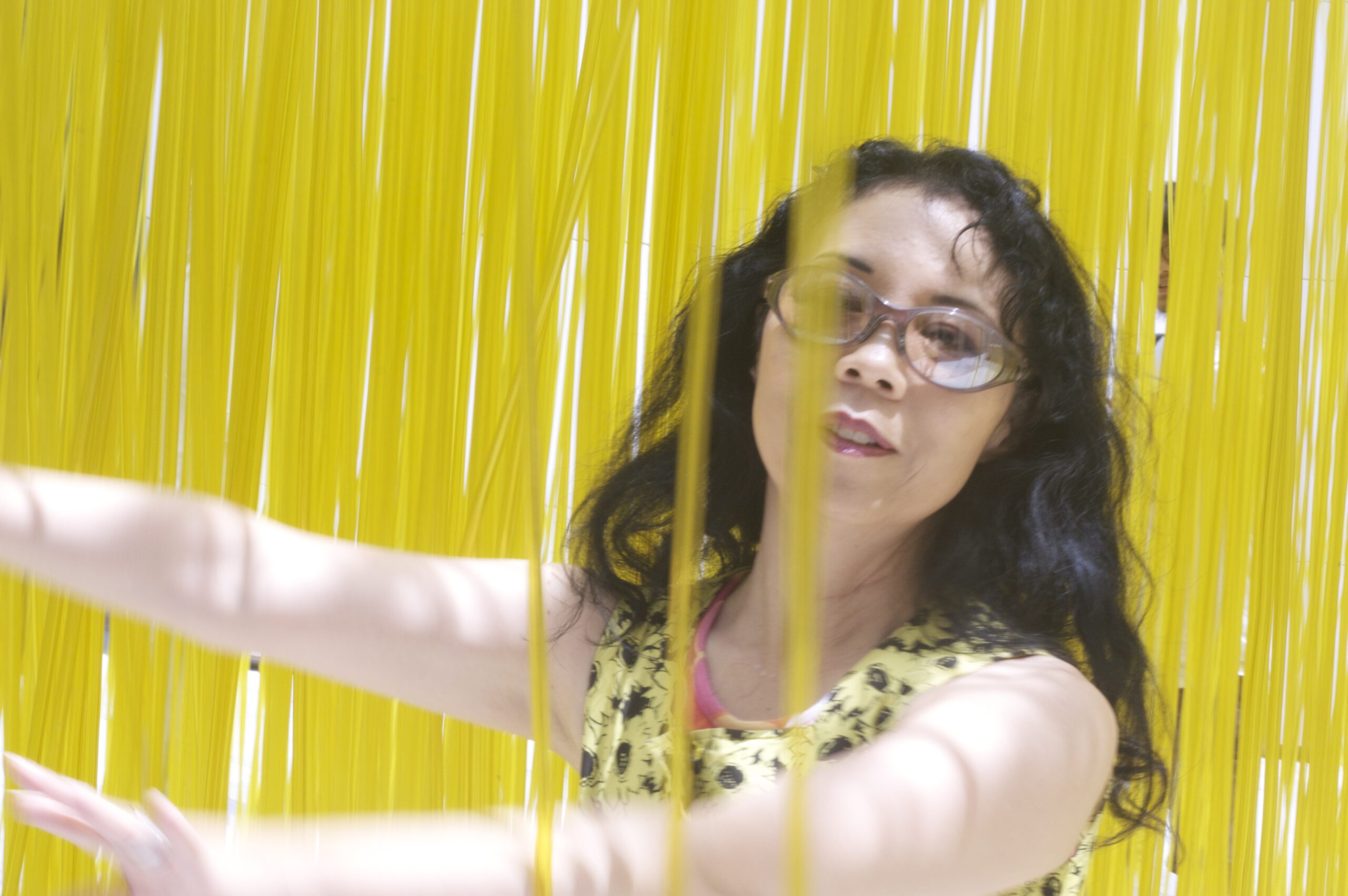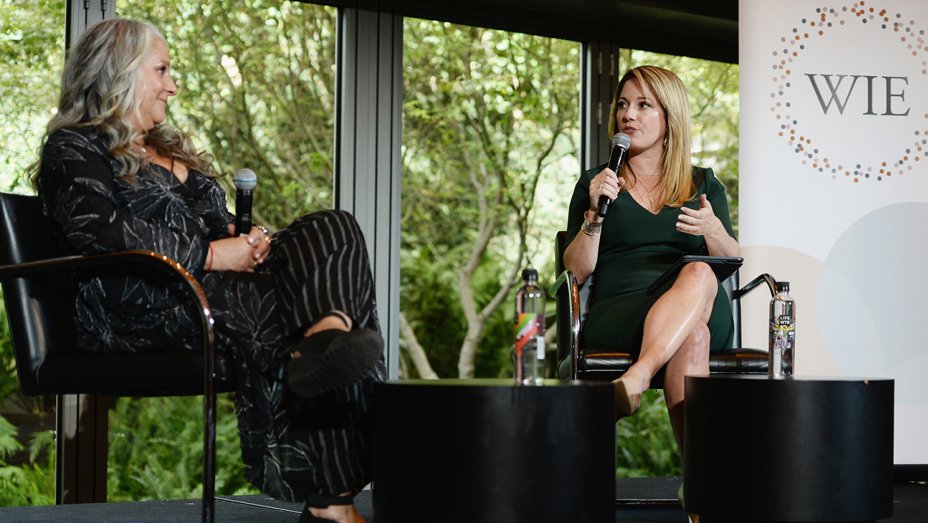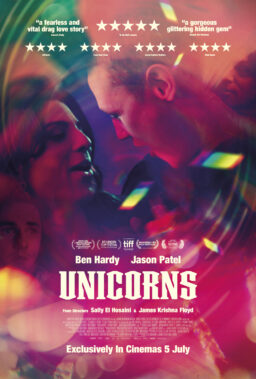Make noise, make coffee, make gift baskets and make your own script. That’s just some of the advice given by the women at the fourth annual Women in Entertainment (WIE) Summit at the Skirball Cultural Center in Los Angeles this past Thursday.
The Time Is Right
With the women’s marches and #MeToo activism, Susan Cartsonis of Resonate Entertainment during a panel on “Transformative Content,” felt strongly that “We have to take advantage of the climate and push to tell our stories. Content driven by girls and women is profitable. We make 90% of consumer purchases and buy over half the movie tickets sold. ” We can’t allow people to think it’s just a case of “the gals got lucky; it’s a fluke.” She added, “It feels like everything we make, everything we do is political.”
What Women Want
During the “A Writer’s Chair” conversation, Marta Kauffman (“Friends” and “Gracie and Frankie”) emphasized “people do want to watch things that aren’t necessarily about themselves” and that old mantra that “nobody wants to watch a movie about girls” has been proven wrong.
Her daughter came up with the idea of two women who didn’t like each other, but whose husbands fall in love with each other. “Gracie and Frankie” explores women and aging—what it’s like to be completely dismissed by society and how two women “can help each other through the aging process.” Explaining the show’s success, Kauffman said, “The show is kind of comfort food: you don’t have to worry too much about people being awful to each other.”
Actress/author Lauren Graham compared getting the script for “Gilmore Girls” with falling in love, but remembered when she was told the series was opposite “Friends” and “Seinfeld”: “I burst out laughing.” Yet “Gilmore Girls” got a following. The sweetest part was “seeing in people’s faces what it meant to them.” She believes the show touched people was because there are “not a lot of shows rooted in kindness and love and positivity.”
Authenticity
A continuing theme was authenticity. That was particularly true during the panel for “The Evolution of a Warrior Princess.” Consider how She-Ra was originally dreamed up by men? What do they know about being heroic while being a woman (and how one would choose to dress). Executive producer Noelle Stevenson said for this reboot, the team wanted She-Ra to be an aspirational woman. She-Ra and her friends are “trying their best but make mistakes. So much of the show is her coming to terms with being a hero. The characters in the show are trying so hard to be good leaders, but it’s not always clear, not always easy to do. We let girls see girls who are messy, girls who are flawed, girls who make mistakes and pick themselves up.”
Nikki Stier of Good Deed Entertainment (The Power of Money panel) said writers must make a unique pitch for a “very clear and underserved audience.” When she hears a pitch that says “This film’s for everyone,” it’s an automatic pass. “We’re looking at films that mitigate risk” and are more genre driven than cast driven.
Being a Woman a Business Plus
Kauffman recalled how during “Friends,” four of the women were pregnant and one of the offices on the set was transformed into a daycare so they could spend time with their babies when the women “were working until two in the morning.” In essence, we need to consider “new ways to encourage women not only to work, but to stay in the workplace.
Bernadette McCabe of MoviePass (Driving Engagement and Storytelling panel) also asked women to think that if “you’re right for the job” that you’re still right for the job “even if you’re pregnant.” She once thought of pregnancy as a limitation, but found a supportive company that convinced her otherwise.
Women can make a difference for men and women in other positions. Just last year, Kauffman learned that the production jobs that were initially held by women and considered “secretarial” even today are poorly paid. What she can do is pay those positions better.
Taking Care of Business
Nina Tassler, former chairwoman of CBS Entertainment who, with producer Denise Di Novi just this year formed a new multi-platform studio PatMa Productions, had advice about negotiations. “One of the things that I learned from one of the agents I had early on was being generous in negotiation.” Tassler qualified that saying that doesn’t mean “giving away the store,” but thinking about your partner as your equal because “you both have something to gain through negotiation.” You must also “know your cue, know when you can jump in” and also “know when you can circle back to a point that was ignored.”
Tassler’s three-point rule is: phone call, email and in-person conversation. She explained, “I don’t assume that an email is making clear that I need to say” because “email is killing nuance.”
Denise Shull of the ReThink Groupspoke who was one of the inspirations for the performance coach in “Billions,” admonished women to consider their emotions as data. “Don’t feel guilty about having negative emotions” but “learn what it feels to have an instinct that’s right.”
Kristi Ross of tastytrade; (The Power of Money panel) also noted you have to “know your narrative, know your numbers, know your industry” and when you pitch “own the room.”
As a writer, Graham advised, “Don’t be perfect—just get done.” You can go back later and improve.
Decision Makers
What Kauffman advised the audience to “be noisy.” Don’t be the woman in the room whose idea gets repurposed five minutes later by a man to the approval of the whole room. “I am an idea whore. I will take an idea from anybody” and that’s what a good leader should do, listen. But the future for female-driven stories will be slow “until we have diverse people making decisions.”
Talking about “The New Marvel,” Victoria Alonso, producer and executive vice president of production at Marvel Studios, noted that you don’t always have to be confrontational to be noisy. Once when asked to make coffee, she did just that and was stopped by the man who asked when she began to add a sweetener because he didn’t want that. She just explained that she did and now he knew how to use the coffee machine.
<span class="m_-8479411752250651828m_-1121634171749048304gmail-s1" <that="" echoed="" a="" good="" use="" of="" gift="" basket="" by anna="" holmes="" from="" jezebel="" (inclusion="" and="" media="" panel).="" to="" make="" point="" about="" the="" differing="" experiences="" between="" men="" women,="" she="" sent="" very="" woman-centric="" male="" executive="" that="" included="" tampons.
That echoed a good use of a gift basket by Anna Holmes from Jezebel (Inclusion and Media panel). To make a point about the differing experiences between men and women, she sent a very woman-centric basket to a male executive that included tampons.
Men are not the enemy. While the audience was predominately female, there were a few men in attendance and Alonso noted, “Talking about diversity and pushing for diversity only works if we do it together. It can’t be only women or only men. Everyone needs to speak up because “silence is your worst enemy.”
“I hope for my daughter that she knows it’s only impossible until you accomplish it,” Alonso said, noting that “Black Panther” broke traditional market expectations of a racial divide and the upcoming “Captain Marvel” will hopefully find an audience just as “Wonder Woman” did.
In a sense, women in entertainment are navigating cultures and countries into new territories. Tassler said, “Inclusivity and diversity, that’s our North Star.” More concretely, several speakers said don’t forget to vote.












